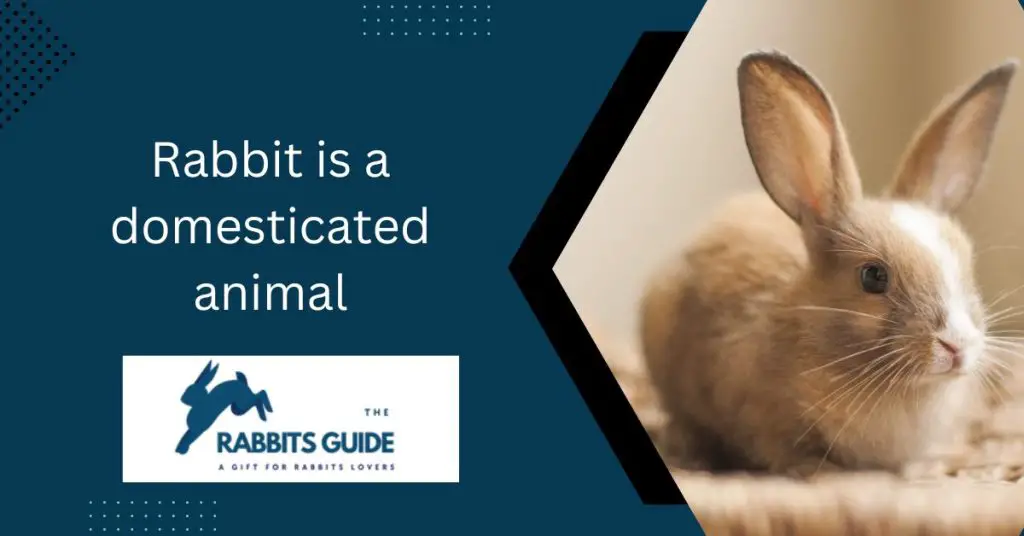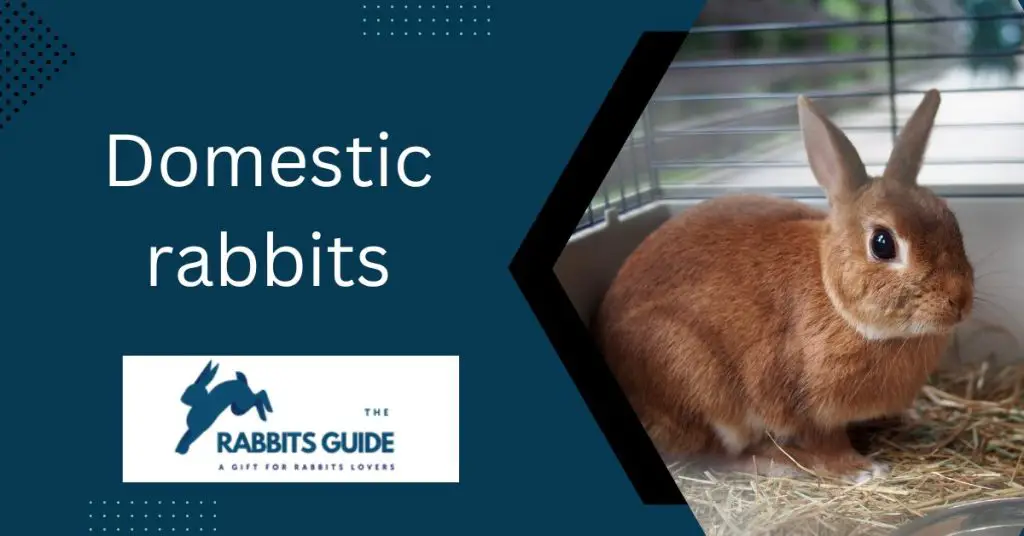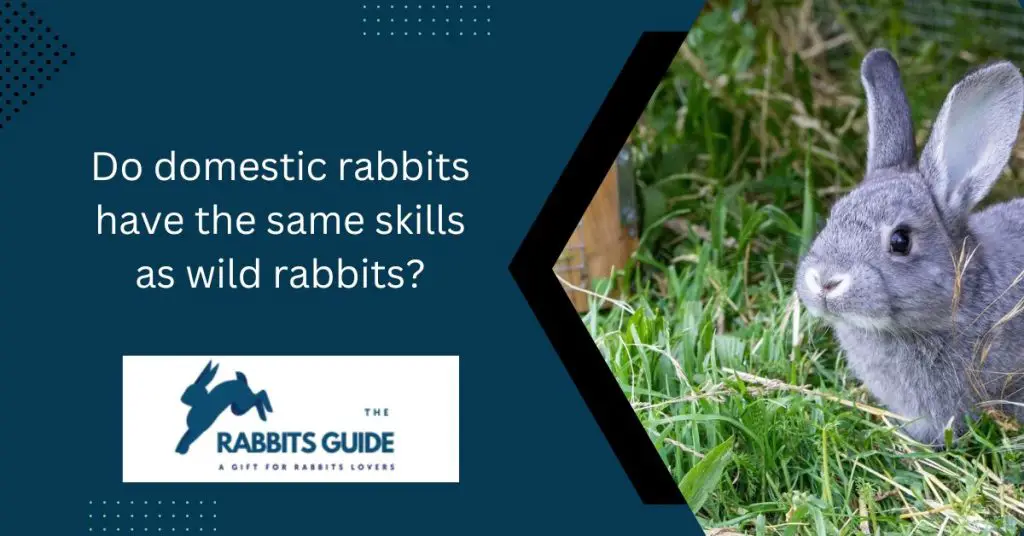Last updated on July 15th, 2023 at 06:56 am
can a domesticated rabbit survive in the wild? The answer is not simple, as it depends on many factors. However, we have compiled some information that will help you understand the challenges a domesticated rabbit would face if it were released into the wild. Read on to learn more.
Is it possible to survive in the wild as a tame rabbit? Pet parents often ask this question. Unfortunately, this is not the case. The wild is not a suitable habitat for domesticated rabbits. Their skills and instincts are insufficient to enable them to survive on their own. This article should be read before letting your pet rabbit loose.
Introduction
Domesticated animals include rabbits. Their ability to survive in the wild has not evolved over the years. It is customary for domestic rabbits to live in a controlled environment and with humans. Humans are also the primary source of food for domesticated rabbits. However, what would happen if you released your pet rabbit into the wild? Rabbits that live in captivity can live with their wild counterparts, but do not possess the necessary survival skills to survive on their own. What would happen to it if it was starved to death?

Rabbit is a domesticated animal
The rabbit is often considered a cute and cuddly animal, but it makes a great pet as well. A rabbit can provide companionship and some protection, as they are relatively easy to care for.
A rabbit is a social animal and thrives when he or she has a companion to cuddle with. Their activity also requires plenty of space, so they need to be able to play and run freely.
Rabbits should have access to a larger area to run around in alongside a hutch or cage that keeps them safe and provides some exercise.
It is generally believed that rabbits are relatively clean animals, and they groom themselves regularly. Despite this, their owners are still required to assist them in maintaining a healthy and clean environment for them.
Among the things that should be done are brushing their fur, trimming their nails, and cleaning their cages or hutches.
In addition to being intelligent animals, rabbits are also capable of learning tricks, using litter boxes, and even responding to commands.
Having a rabbit as a pet can be a fun and rewarding experience if you have the patience and effort to care for it.

Rabbits can live up to 10 years in the wild.
There is a good reason why rabbits are one of the most popular house pets in the world. Besides being adorable, cuddly, and relatively low maintenance, they are very easy to take care of.
You may not be aware of this, but rabbits can live for quite some time.
The lifespan of a rabbit in the wild can reach ten years. The average pet rabbit lives only five to eight years, which is nearly double that of the average pet rabbit

Domestic rabbits
A domestic rabbit possesses a special quality. Something is charming and innocent about them that is difficult to resist. We may be attracted to their cute little noses, or perhaps it is their floppy ears. There are many reasons why rabbits are becoming more popular as pets in recent years.
People of all ages enjoy owning rabbits as pets. Litter box training is relatively easy with these cats. They are also relatively low maintenance. It is also worth noting that they are relatively quiet, so your neighbors will not be disturbed by them.
2To live in harmony with their human companions, rabbits need some level of social interaction with them. It is a great choice for a pet, but they are not suitable for all children.

Wild rabbits
Many parts of the world are home to wild rabbits. It is quite common to see these fuzzy creatures hopping around in fields and meadows, and they are a familiar sight in many gardens.
Generally, wild rabbits are smaller than domestic rabbits, and their ears are long and their tails are short. In general, they tend to appear brown or gray, with a light underbelly.If there is food available in gardens and yards, wild rabbits can be attracted to them.
Grass, vegetables, and other plants are the most common food sources of these creatures. As well as insects, they will also eat grubs and small animals. There may be health risks associated with wild rabbits, as well as damage to gardens and crops.
By making the garden area less inviting to wild rabbits, you can deter them from entering your garden. Keep your lawn and plants well trimmed and remove any sources of food. To prevent rabbits from entering your garden, you can also erect a fence around it.

Do domestic rabbits have the same skills as wild rabbits?
In recent years, there has been considerable debate regarding whether domestic rabbits are capable of the same skills as wild rabbits. It is believed by some individuals that domestic rabbits are less capable of surviving than their wild counterparts.
According to others, domestic rabbits are just as capable as wild rabbits but haven’t been given a chance to hone their abilities. The answer is unclear, however, some key differences between domestic and wild rabbits may affect their ability to survive.
Wild rabbits, on the other hand, are constantly on the lookout for danger, whereas domestic rabbits are usually not concerned about predators. Additionally, domestic rabbits tend to receive a more consistent diet than wild rabbits, which can enhance their chances of survival in times of food scarcity.
The ability of domestic rabbits to perform the same tasks as wild rabbits cannot be definitively determined. However, some factors could impact their ability to survive in the wild.

How long do domesticated rabbits live in the wild
As a result of their domestication and dependence on humans for food, shelter, and medical care, domestic rabbits are not capable of surviving in the wild. The wild rabbit faces many dangers, including predators, harsh weather conditions, and diseases. This leads to the fact that they typically do not live as long as they do in domestic settings.
Most domestic rabbits live 8-12 years, but some live up to 10-15 years; however, they may live much shorter lives in the wild due to the challenges they must overcome.
A domestic rabbit should not be released into the wild. If you are no longer able to care for your rabbit, you should adopt him or her out to a responsible owner or find a rescue organization to help.
Can A Tame Rabbit Live In The Wild
When tame rabbits are used to being fed and cared for by humans, they may not be able to survive in the wild. They may not know how to find food or protect themselves from predators if they are left to their own devices. A wild rabbit’s natural instincts and behaviors, such as digging burrows and hiding from danger, may also be lacking in them.
Although a tame rabbit cannot live in the wild by itself, with time and patience, it may learn how to find food, find shelter, as well as avoid predators.
Ultimately, whether a tame rabbit can live in the wild depends on the individual rabbit and its surroundings. It may be more difficult for a tame rabbit to thrive in the wild, but with proper care and guidance, it is possible for them to adapt and survive in their new environment.

Can domestic rabbits survive in the cold
It is true that rabbits can survive in the cold, especially during the winter months. However, their owners will need to provide them with additional care and attention for them to survive.
It is first and foremost imperative that your rabbit is kept warm and warm in an insulated hutch. Additionally, it is a good idea to provide your rabbit with additional bedding, such as straw or blankets, in order to keep them warm during the coldest times of the year. This will protect your rabbit from drafts and keep them warm.
Your rabbit’s diet is another important factor, as well. During the winter, it is important to ensure they are eating enough nutritious hay and vegetables to keep them warm and healthy.
It is also important to monitor your rabbit’s behavior and body language. If they appear lethargic or shivering, they may be too cold and need warmth. It may be necessary to bring your rabbit indoors to a warmer location.
In general, domestic rabbits can survive the cold as long as their owners give them proper care. In order to make sure your rabbit can survive the winter months happily and healthily, you will need to provide him with a warm, insulated hutch, and a nutritious diet, and monitor his behavior.

Can a domesticated rabbit survive in the wild?
Yes, As long as it has the necessary adaptations and skills to thrive in its new environment, a domesticated rabbit can survive in the wild.
What kind of adaptations do domesticated rabbits need to survive in the wild?
The ability to hide from predators and good senses of smell and hearing are essential traits for domesticated rabbits to survive in the wild.
Will a domesticated rabbit be able to find food and water in the wild?
Compared to wild rabbits, which are more adapted for foraging and finding resources in their natural habitat, domesticated rabbits may have difficulty finding food and water in the wild.
How long can a domesticated rabbit survive in the wild?
Food, water, shelter, and the ability to evade predators and protect itself from the elements are all factors that influence how long a domesticated rabbit can survive in the wild.
Is it recommended to release a domesticated rabbit into the wild?
No, The release of domesticated rabbits into the wild is not recommended. Rabbits that have been domesticated cannot thrive in the wild because they do not have the skills and adaptations necessary to survive, and they may not be able to fend for themselves. As pets, domesticated rabbits should be provided with the proper care and habitat so they can live a happy and healthy life.
Conclusion
For more than 3500 years, rabbits have been domesticated and bred in captivity. Their diet and habitat requirements are very specific, and they cannot survive in the wild. The dangers of life in the wild can be so great that rabbits are incapable of defending themselves against predators. As a result of lack of nutrition, exposure, or predation, they will soon die if left to their own devices.
